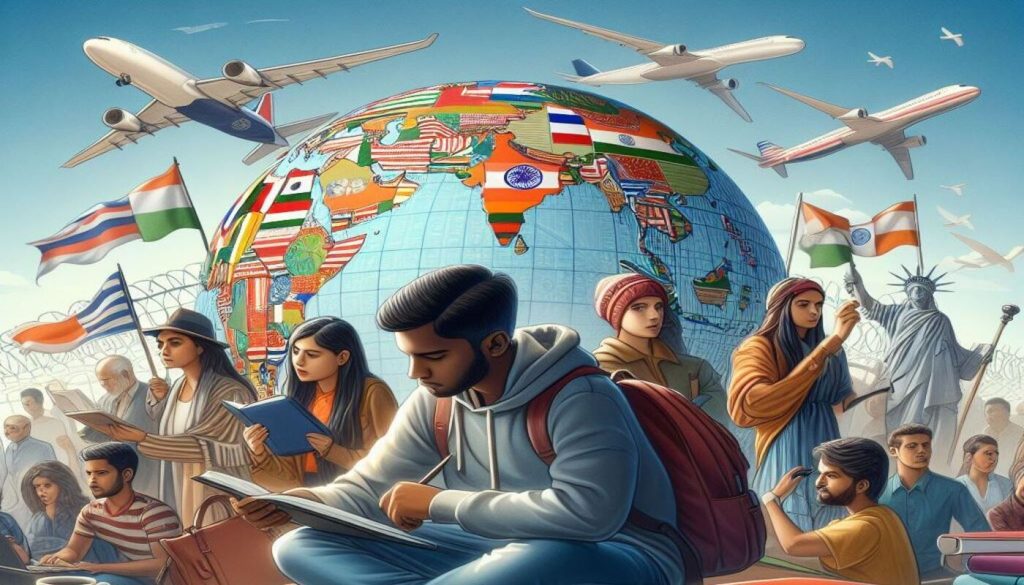As UK, Australia, and Canada implement new immigration regulations for international students, Indian students are exploring alternative options for pursuing higher education abroad. India ranks among the top five countries worldwide for sending students overseas, with projections indicating a surge to 1.8 million Indian students studying abroad by 2024. Traditionally favored destinations such as the US, UK, Canada, and Australia are witnessing shifts in immigration policies, prompting concerns among prospective students.
Lil Bremermann-Richard, Group CEO of Oxford International Education Group, sheds light on the evolving sentiment among Indian students following these changes. The announcements of restrictive measures by key study destinations have introduced a sense of uncertainty and apprehension among students. While inquiries for overseas education remain high, reports indicate a significant decline in Indian students applying for studies abroad in 2024.
Students are particularly concerned about visa acquisition, potential limitations on employment opportunities, and the reception they might encounter in their chosen destinations. This uncertainty has led some students to reconsider their plans, explore alternative study options, or delay their decisions.
In terms of course preferences, Indian students are gravitating towards career-focused fields such as Data Science, AI, Machine Learning, Cybersecurity, Blockchain Technology, and Data Analytics. These courses offer promising prospects for career development and advancement in today’s competitive job market.
Globally, the placement scenario varies across regions and sectors, influenced by economic conditions and industry demand. While certain regions boast robust job markets with ample job opportunities, others face challenges such as stagnant growth or job market saturation. Despite these fluctuations, students are advised to focus on developing a diverse skill set, resilience, adaptability, continuous self-development, and networking to enhance their employability in the global landscape.
Foreign education plays a crucial role in India’s economic growth story by facilitating knowledge transfer, global awareness, and leadership skills development. Graduates returning with international education contribute to India’s economy through entrepreneurship, research collaborations, and knowledge transfer. Moreover, a skilled workforce with international exposure attracts foreign investment, fosters innovation, and enhances India’s competitiveness in the global marketplace, ultimately fueling economic growth.
Source: MSN
















